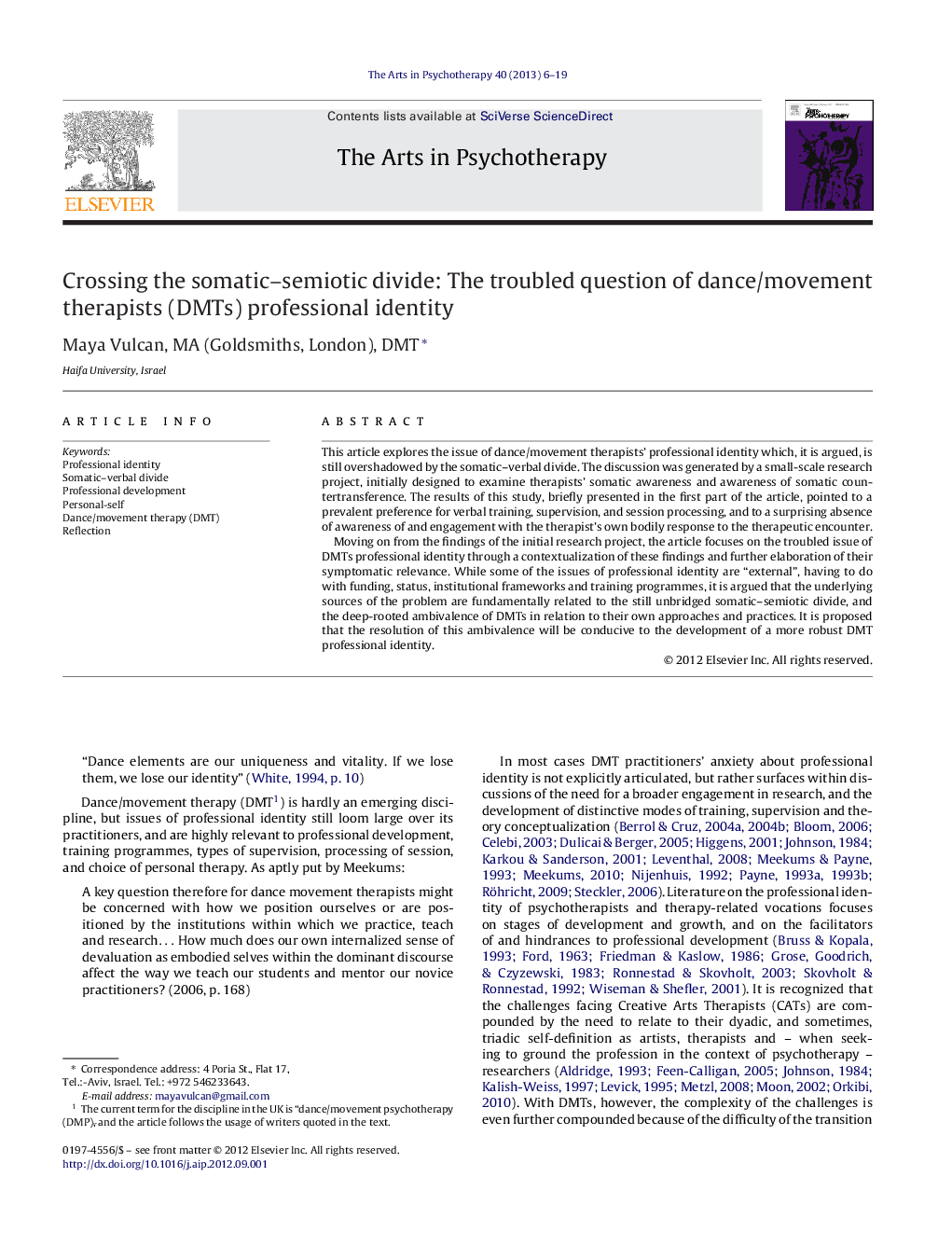| Article ID | Journal | Published Year | Pages | File Type |
|---|---|---|---|---|
| 343809 | The Arts in Psychotherapy | 2013 | 14 Pages |
This article explores the issue of dance/movement therapists’ professional identity which, it is argued, is still overshadowed by the somatic–verbal divide. The discussion was generated by a small-scale research project, initially designed to examine therapists’ somatic awareness and awareness of somatic countertransference. The results of this study, briefly presented in the first part of the article, pointed to a prevalent preference for verbal training, supervision, and session processing, and to a surprising absence of awareness of and engagement with the therapist's own bodily response to the therapeutic encounter.Moving on from the findings of the initial research project, the article focuses on the troubled issue of DMTs professional identity through a contextualization of these findings and further elaboration of their symptomatic relevance. While some of the issues of professional identity are “external”, having to do with funding, status, institutional frameworks and training programmes, it is argued that the underlying sources of the problem are fundamentally related to the still unbridged somatic–semiotic divide, and the deep-rooted ambivalence of DMTs in relation to their own approaches and practices. It is proposed that the resolution of this ambivalence will be conducive to the development of a more robust DMT professional identity.
► A discussion of DMTs’ professional identity in relation to both immanent problems and external factors. ► DMTs’ sense of professional vulnerability, as evidenced in their choices of further training, supervision, and therapy. ► DMT's implicit but deep-rooted internalization of the verbal–nonverbal hierarchy in relation to their own practices. ► This inner ambivalence is a contributing factor in the lack of external recognition and institutional frameworks. ► Addressing the issue of this ambivalence through research and discussion will empower DMTs’ professional identity.
